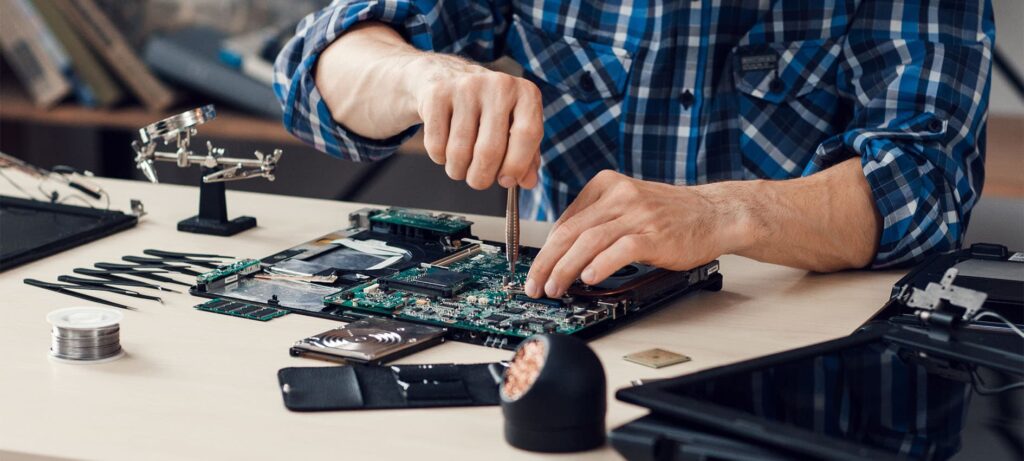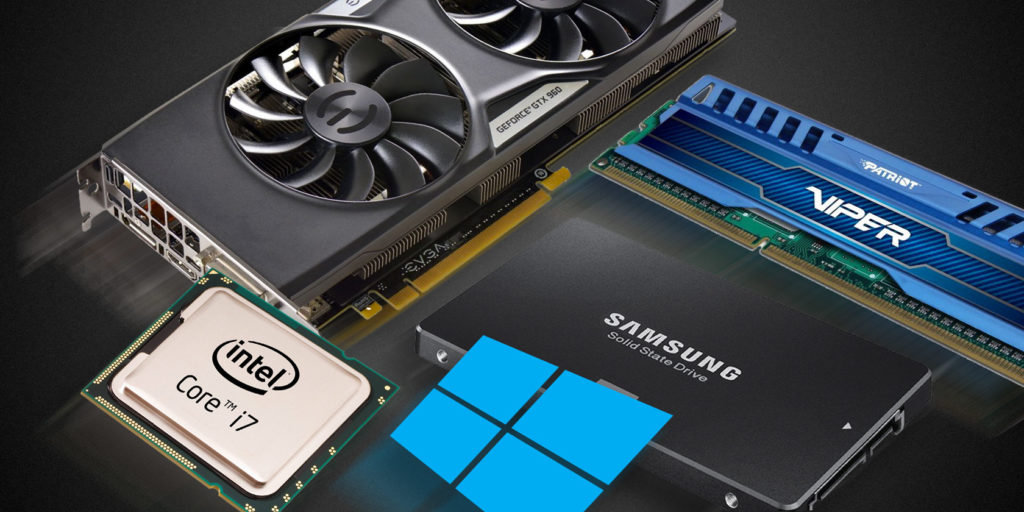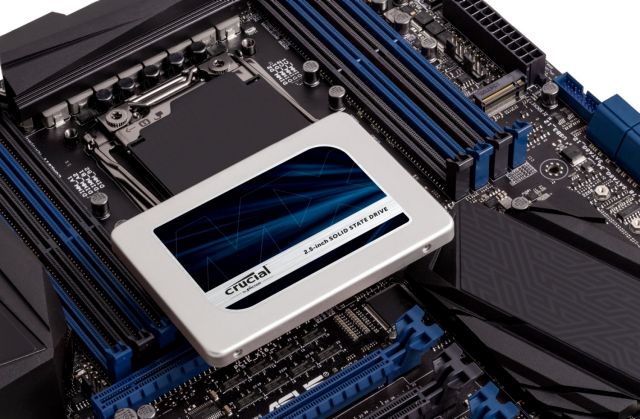When it comes to keeping up with the ever-evolving technology of PCs, the question of whether to buy a new computer or upgrade its parts can be a puzzling one. While the allure of a shiny new device is tempting, there’s also the consideration of cost and the potential wastage of still functional components. In this article, we’ll explore the pros and cons of both options to help you make an informed decision about the best route to take for your PC needs.
Cost Considerations
Comparing the Cost of Buying a New PC vs. Upgrading Parts
When considering whether to buy a new PC or upgrade parts of your current one, cost is a major factor to take into account. Buying a new PC generally involves a higher upfront cost, as you are purchasing an entirely new system. On the other hand, upgrading parts allows you to replace or add individual components, which can be more cost-effective.
Budget Constraints and Priorities
Your budget constraints and priorities will greatly influence your decision between buying a new PC or upgrading parts. If you have a limited budget, upgrading parts may be the more practical option. By focusing on upgrading specific components, you can allocate your budget strategically and improve the performance of your current PC without breaking the bank. However, if you have more flexibility in your budget and prioritize having the latest technology and performance capabilities, buying a new PC may be the right choice for you.
Cost-effectiveness Analysis
To determine the cost-effectiveness of buying a new PC versus upgrading parts, you need to consider the cost per performance improvement. Upgrading parts can be more cost-effective if you identify the components that are bottlenecking your system’s performance and focus on upgrading those specific parts. However, if your PC is outdated or lacks upgradability, purchasing a new PC with better overall specifications may provide better long-term value for your money.
Performance and Capability
Analyzing the Performance of a New PC
When you buy a new PC, you are investing in the latest technology and hardware, which often translates to enhanced performance. New PCs usually come with faster processors, more RAM, and improved graphics cards, allowing for smoother multitasking, faster load times, and better gaming experiences. If you require a significant boost in performance, such as for demanding video editing or gaming tasks, a new PC might be the best option for you.
Assessing the Impact of Upgrading Parts on Performance
Upgrading parts can also improve your PC’s performance, albeit to a varying degree. For example, adding more RAM can enhance multitasking capabilities, while upgrading the CPU can improve processing speed. However, the impact of upgrading individual components may be limited by the overall capabilities and limitations of your current PC. Careful consideration of which components to upgrade is crucial in order to achieve the desired level of performance improvement.
Determining the Desired Level of Capability
When deciding between buying a new PC or upgrading parts, it is important to assess your desired level of capability. Consider the specific tasks you perform on your PC and determine the level of performance required to meet your needs. If your current PC can handle your intended usage but falls short in some areas, upgrading specific components may be sufficient. However, if you require a significant increase in capability, such as for professional work or high-end gaming, a new PC with superior specifications will likely be the better choice.

This image is property of www.pcworld.com.
Compatibility and Technical Limitations
Factors to Consider Regarding Compatibility
Compatibility is a crucial aspect when it comes to upgrading parts. Not all components are compatible with every PC, so it is essential to research and ensure that the parts you plan to upgrade are compatible with your current system. Factors such as the motherboard’s compatibility with a specific CPU socket type or the power supply’s capabilities to support higher-end components need to be considered. Failure to ensure compatibility may result in a non-functional or unstable system.
Technical Limitations of Upgrading Parts
Upgrading parts also comes with certain technical limitations. For instance, if your PC’s motherboard only supports a certain generation of CPUs, you may be limited in terms of which processors you can upgrade to. Similarly, if your power supply does not provide sufficient wattage, you might run into issues when upgrading to more power-hungry components. It is important to understand the technical limitations of your current PC before deciding to upgrade.
Evaluating Potential Compatibility Issues
To avoid potential compatibility issues, thorough research is necessary before upgrading parts. Consult the specifications of your PC and the components you plan to upgrade to ensure there are no conflicts. Additionally, checking for compatibility on manufacturer websites, consulting with experts, or seeking advice from online communities can help identify any potential issues. Proper evaluation of compatibility can save you the hassle and expense of purchasing incompatible components.
Future-proofing and Longevity
Considering the Future Needs and Requirements
When deciding between buying a new PC or upgrading parts, it is important to consider your future needs and requirements. If you anticipate that your computing needs will increase in the future, upgrading parts may only provide a temporary solution. On the other hand, investing in a new PC with better overall specifications can ensure that your system is capable of meeting your needs not only now, but also in the years to come.
Predicting Technological Advancements
Another aspect to consider is the pace of technological advancements. New PCs often come with the latest technologies, such as faster processors, improved graphics cards, and more efficient power supplies. By purchasing a new PC, you can benefit from these advancements and ensure that your system remains up to date. However, if you choose to upgrade parts, it is important to research and consider whether the components you are upgrading to will soon become outdated.
Estimating the Lifespan of Upgraded Parts
Upgrading parts can extend the lifespan of your PC to a certain extent. By replacing outdated or faulty components, you can improve reliability and performance. However, it is important to recognize that even with upgrades, there will be a limit to how long your PC can remain viable. As technology advances, compatibility issues may arise, and eventually, your PC may reach a point where further upgrades are no longer feasible. Estimating the lifespan of the upgraded parts and considering how long they will meet your needs is essential in making an informed decision.

This image is property of www.hp.com.
Ease of Installation and Expertise
Complexity of Replacing or Upgrading Parts
Replacing or upgrading parts in a PC can range from simple plug-and-play operations to more complex procedures. Simple upgrades, like adding more RAM or replacing a hard drive, can often be done by users with minimal technical expertise. However, more intricate upgrades, such as installing a new CPU or graphics card, may require advanced knowledge and skills. Assess your comfort level with computer hardware and consider the complexity of the upgrades you wish to perform before deciding whether to buy a new PC or upgrade parts.
Required Technical Skills and Expertise
Upgrading parts usually involves working with delicate hardware and components, so it is important to consider your own technical skills and expertise. If you are not confident in your ability to perform the necessary upgrades correctly, you may risk damaging your components or voiding warranties. In such cases, seeking professional assistance from computer technicians or service centers may be a safer and more cost-effective option. On the other hand, if you possess the required technical skills, upgrading parts can be a rewarding and budget-friendly experience.
Ease of Installation for a New PC
When buying a new PC, installation is typically straightforward. Manufacturers ensure that the system is preassembled and ready to use, often including detailed step-by-step instructions. This makes the process of setting up a new PC relatively simple, even for those with minimal technical knowledge. If you prioritize convenience and ease of installation, purchasing a new PC may be the more appealing choice compared to the potential complexities of upgrading parts.
Warranty and Support
Warranty Coverage for New PC
One significant advantage of purchasing a new PC is the warranty coverage provided by manufacturers. Most new PCs come with warranties that offer protection against defects in materials or workmanship. This warranty can provide peace of mind, as it ensures that you are covered in case of any hardware failures or malfunctions. Additionally, manufacturers often offer customer support services, allowing you to easily address any issues that may arise.
Availability of Technical Support
Another factor to consider is the availability of technical support. When you buy a new PC, you can rely on the manufacturer’s technical support team for assistance with any hardware or software-related concerns. They can provide guidance, troubleshooting tips, and even remote assistance if needed. This level of support can be invaluable, especially if you are not technologically inclined or prefer having professional assistance readily available.
Support for Upgraded Parts
When upgrading parts, the availability of warranty and technical support varies depending on the specific components you choose. Some manufacturers offer warranties and technical support for upgraded parts, while others may not. It is essential to research and ensure that the components you plan to upgrade have sufficient warranty coverage and technical support options. Without these safeguards in place, you may be left without assistance or recourse in case of any issues or failures.

This image is property of www.alltechflix.com.
Personal Preferences
Customization Options
One advantage of upgrading parts is the ability to customize your PC to suit your specific needs and preferences. By selecting individual components, you have greater control over the performance, features, and aesthetics of your PC. This level of customization can lead to a more personalized computing experience, tailored to your specific requirements. If you have a unique vision for your PC and enjoy the freedom of customization, upgrading parts can be an exciting and satisfying endeavor.
Attachment to Current PC and Familiarity
If you have a sentimental attachment to your current PC or are accustomed to its layout, performance, or specific features, you may prefer to stick with upgrading parts rather than purchasing a new PC. Upgrading parts allows you to retain the familiarity and comfort of your existing system while improving its capabilities. Additionally, if you have invested time and effort into customizing software settings and preferences, upgrading parts can minimize the need for reconfiguration.
Visual and Aesthetic Appeal
The visual and aesthetic appeal of your PC also plays a role in the decision between buying a new PC or upgrading parts. New PCs often come with sleek designs and modern aesthetics, which can enhance the overall appearance of your workspace. If visual appeal is important to you, the fresh look of a new PC may be more appealing. However, if you have customized the appearance of your current PC or have specific aesthetic preferences, upgrading parts allows you to maintain the visual style you prefer.
Environmental Impact
Considerations for Eco-friendliness
In an era where environmental impact is a growing concern, considering the eco-friendliness of your decision is important. When upgrading parts, you can help reduce electronic waste by extending the lifespan of your current PC. By making targeted upgrades to improve performance or energy efficiency, you can minimize the need for disposal of entire systems. Choosing components with eco-friendly certifications or low power consumption can further contribute to reducing your environmental footprint.
Evaluating Electronic Waste
When buying a new PC, there is an inevitable environmental impact due to the production and disposal of electronic waste. Old PCs often end up in landfills, polluting the environment and wasting valuable resources. By upgrading parts and extending the useful life of your current PC, you can contribute to reducing electronic waste and its detrimental effects. By making a conscious choice to minimize waste, you can align your decision with sustainable practices.
Sustainable Practices
By considering eco-friendly options and making sustainable choices, you can positively impact the environment. In addition to upgrading components, recycling or donating old parts can minimize waste and provide opportunities for reuse. Additionally, researching and purchasing energy-efficient components can lower power consumption, reducing your carbon footprint. By incorporating sustainable practices into your decision-making process, you can align your choice with the need for environmental conservation.

This image is property of cdn.mos.cms.futurecdn.net.
Resale Value
Potential Resale Value of Upgraded PC
When you upgrade parts in your PC, it can potentially increase the resale value compared to an outdated system. Upgraded components, especially those that significantly improve performance or add desirable features, can make your PC more appealing to potential buyers. Highlighting the upgraded parts and their benefits in your resale listing can attract buyers who are seeking a more capable system at a lower price point.
Market Demand for Used PCs
The market demand for used PCs fluctuates depending on factors such as supply and demand, technological advancements, and consumer preferences. While some individuals prefer to purchase new PCs, there is still a market for used systems, particularly for budget-conscious buyers or those who appreciate the value of upgrading components. Understanding the current market demand for used PCs can help you assess the potential resale value of your upgraded system.
Factors Affecting Resale Value of PC
Several factors can affect the resale value of a PC, including its age, specifications, condition, and the availability of similar systems in the market. Newer PCs with higher specifications tend to hold their value better, as they offer better performance and feature sets. Maintaining your PC in good condition, including regular cleaning and upkeep, can also influence the resale value. Additionally, presenting your upgraded PC with accurate and appealing descriptions can make it more attractive to potential buyers.
Upgradability and Scalability
Options for Future Upgrades
When deciding between buying a new PC or upgrading parts, considering the options for future upgrades is crucial. Upgrading parts allows for greater flexibility and modularity, as you can continue replacing or adding components as needed to meet future requirements. This scalability can be an advantage if you anticipate needing further upgrades down the line. However, if your current PC has limited upgradability or lacks compatibility with newer technologies, a new PC with better future-proofing capabilities may be a better option.
Scalability of Individual PC Components
Upgrading individual components allows for greater scalability, as you can prioritize and upgrade specific parts according to your needs and budget. For example, if you require better gaming performance, you can focus on upgrading the graphics card while leaving other components intact. This granular approach to scalability can provide a cost-effective way of improving your system’s capabilities without replacing the entire PC.
Limitations on Upgradable Parts
While upgrading parts offers scalability, there are limitations to consider. Not all components in a PC can be easily replaced or upgraded, as certain parts may be soldered or integrated into the motherboard. Additionally, compatibility issues and technical limitations can further restrict the range of components that can be upgraded. Recognizing these limitations and understanding the impact they may have on future upgrades is necessary when evaluating whether to buy a new PC or upgrade parts.
In conclusion, the decision between buying a new PC or upgrading parts depends on various factors, including cost considerations, performance and capability requirements, compatibility and technical limitations, future-proofing and longevity, ease of installation and expertise, warranty and support, personal preferences, environmental impact, resale value, and upgradability. By carefully evaluating each aspect, you can make an informed decision that best suits your needs, budget, and future goals. Whether you choose to buy a new PC or upgrade parts, both options offer their own advantages and considerations.

This image is property of www.crucial.com.
